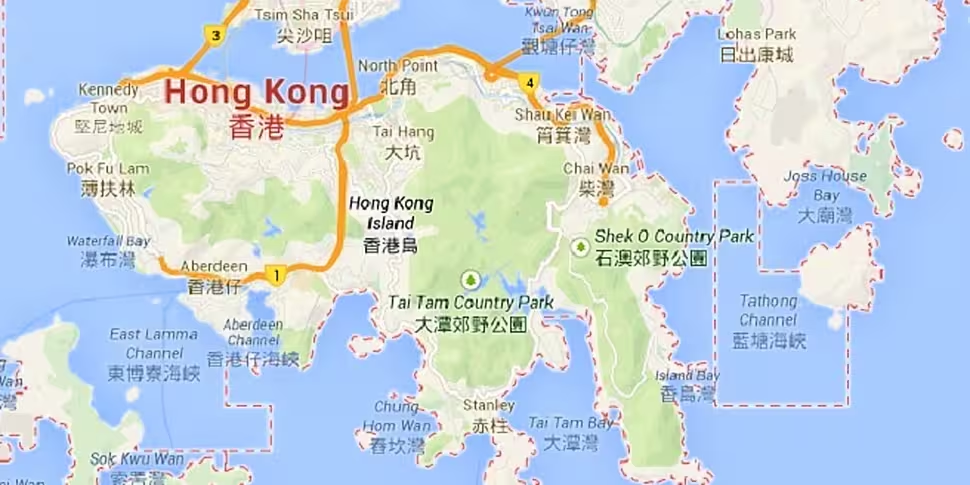It is being reported the Hong Kong government has said that it has withdrawn riot police and is asking protesters to disperse.
Earlier, police used tear gas against thousands of demonstrators demanding full democracy in the territory. The move led to clashes on the streets, as protesters called for the election of a leader who is independent of Beijing.
In a statement, a government spokesman also called on the activists to leave the protest areas as peacefully as possible.
Riot police used pepper spray, tear gas and baton charges on Sunday in an attempt to clear a road that was blocked by thousands of demonstrators.
The activists fled several hundred metres down Harcourt Road in the government district amid chaotic scenes, with protesters screaming "shame" at officers.
But many protesters came right back to continue their protests in the Admiralty area. They are still camped out, but the situation is calm.
Earlier, Hong Kong's chief executive Leung Chun-ying appealed for the protesters to go home and dismissed speculation that the Chinese army might intervene.
But in a statement, the movement called Occupy Central called on Mr Leung to resign and said his "non-response to the people's demands has driven Hong Kong into a crisis of disorder".
The statement added that the protest was now "a spontaneous movement" of all Hong Kong people.
On Sunday, several scuffles broke out between riot police and demonstrators who were angered by the use of tear gas, which is rare in Hong Kong.
Police had also used hand-held pepper spray aimed at dispersing the activists - but without success - and they warned greater force could be carried out.
Occupy Central
The movement to occupy central Hong Kong, in protest at China's interference in the former British colony, had begun three days ahead of schedule on Sunday.
The leader of Occupy Central, Benny Tai, had planned to bring the heart of Hong Kong to a standstill this coming Wednesday - National Day. However he has taken advantage of a separate student protest which has been gathering pace since last week.
Although Occupy Central and the student protests are separate movements, their motivation is the same. They are calling for the Chinese central government to stop interfering with Hong Kong politics, and They want China to allow the people of Hong Kong to choose their own leaders: one person, one vote.
The Chinese government released a statement on Monday saying, "the central government is fully confident that the Hong Kong Special Administrative Region can handle the Occupy Central movement according to law."
On Saturday, more than 60 of the student protesters were arrested after they entered a government area.
Last month, the Communist Party's top political body ruled on changes to the political system in the territory, which is a semi-autonomous part of China.
The ruling said that while Hong Kongers could choose their next leader, or Chief Executive, in 2017, they must select from candidates picked by Beijing. The chosen candidates must declare their "love" for China and its Communist system.
Political protests are banned across mainland China but under the agreement of the 1997 handover from Britain to China, Hong Kong was given autonomy. Under this agreement, protests can take place in Hong Kong.
However, in the 17 years since the handover, there has never been such a large call for the central government in Beijing to back off.
Reports suggest that over 30 people have suffered minor injuries over the past few days in clashes with the authorities.









